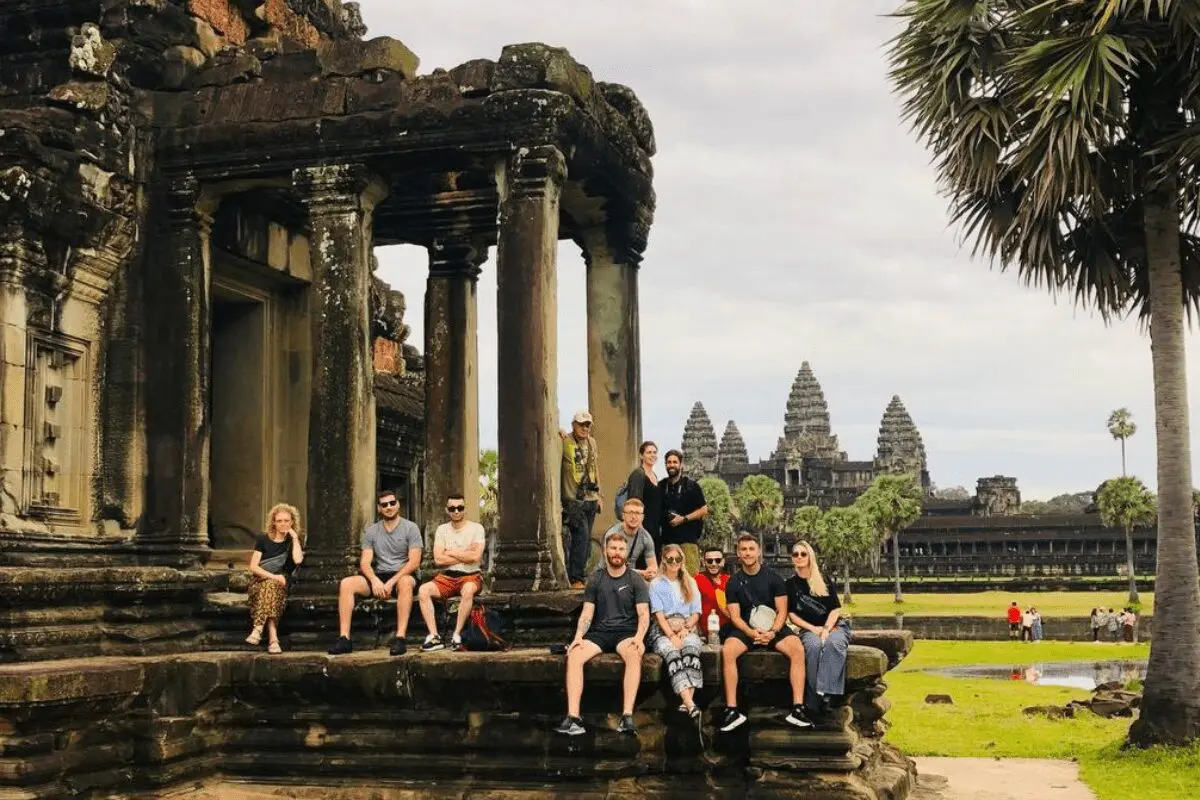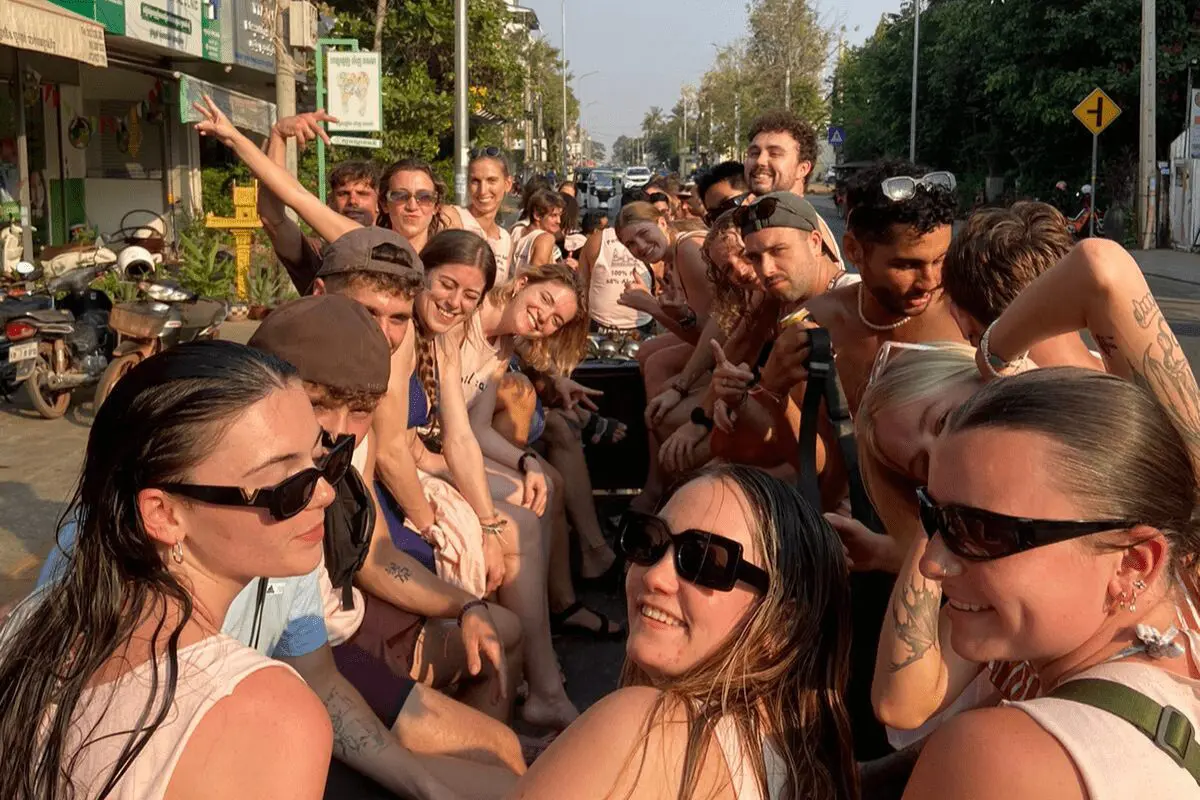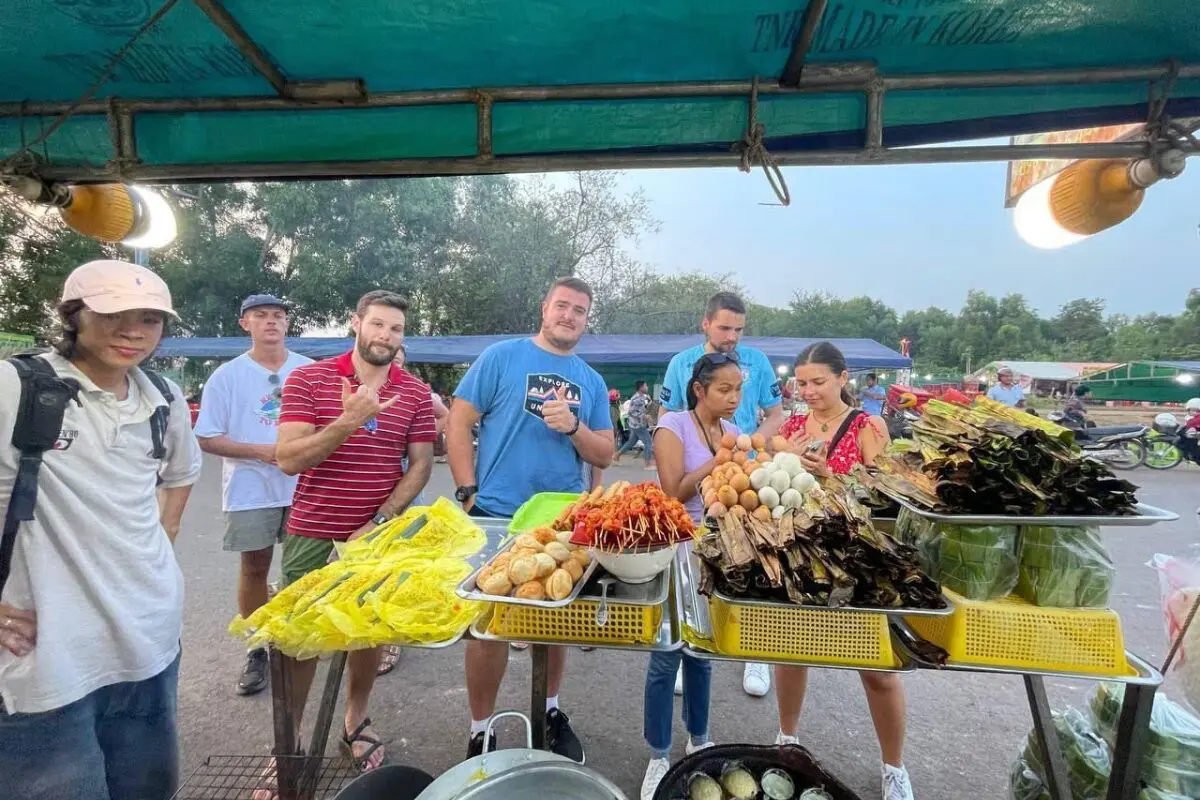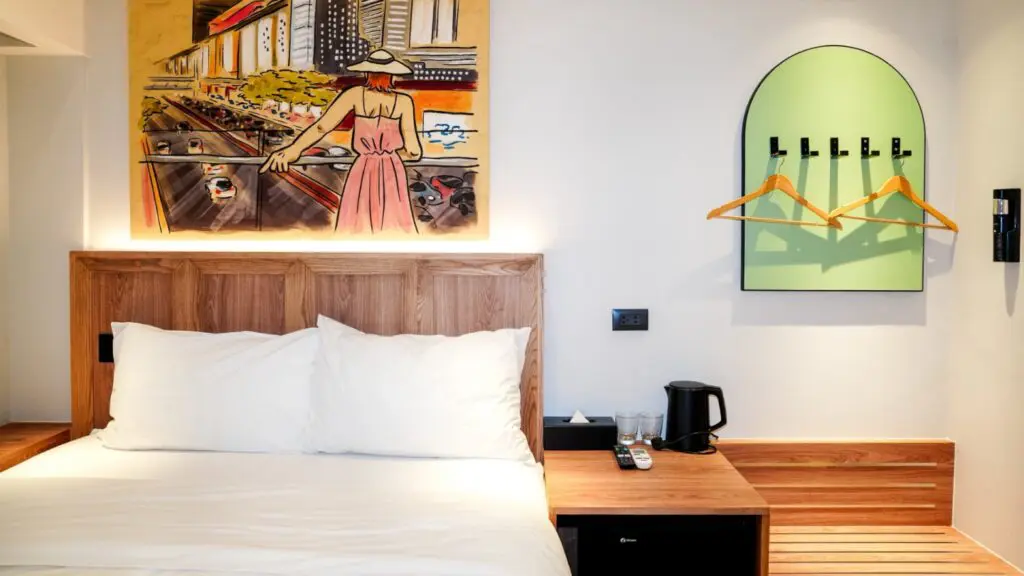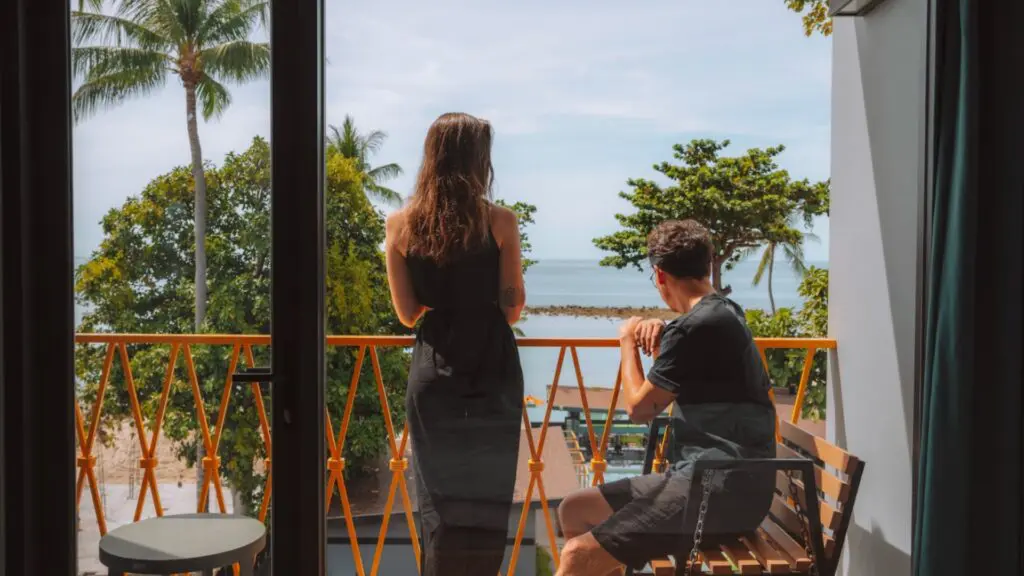If you’re heading to Cambodia, especially Siem Reap—you’re in for a cultural experience like no other! While you’ll find that many locals, particularly younger generations, speak English fairly well, picking up a few key Khmer phrases will enhance your visit and create more genuine connections with the people you meet.
Lub d will walk you through the most useful Khmer phrases that will help you navigate your time in Cambodia with ease and respect.
Introduction
Planning a trip to Cambodia? Whether you’re backpacking through Siem Reap or visiting the iconic Angkor Wat, understanding a few key Khmer phrases can make your experience more immersive and enjoyable. Even though younger Cambodians often speak decent English, learning their language shows respect and can lead to more meaningful interactions. Let’s dive into the basics you’ll need to know to get by.
Basic Khmer Greetings and Essentials
Chom reap sour [chom-reap-sour] – Hello (formal)
In Cambodia, respect plays a significant role in daily interactions, and using formal greetings is a part of this. “Chom reap sour” is the polite way to say hello, especially when addressing elders or those of higher social standing. You’ll often pair this greeting with a “sampeah” (hands together in a prayer-like gesture and a slight bow).
Susadei [soo-sa-day] – Hello (informal)
When chatting with friends or people your own age, you can opt for the more casual “Susadei.” This is a friendlier, everyday greeting often accompanied by the same “sampeah” gesture, though slightly less formal.
Soksaby [sok-sa-bye] – How are you? / I am fine
In Khmer, the question “How are you?” and the response “I’m fine” are the same—only the intonation changes. When asking, you use a rising tone, and when answering, a falling one. It’s a quick way to check in with new friends or vendors during your travels.
Chom reap lear [chom-reep-lear] – Goodbye (formal)
If you’re leaving a formal setting, you’ll want to say goodbye using “Chom reap lear,” maintaining that same level of respect you had when saying hello.
Lear hi [lea-hi] – Goodbye (informal)
For casual goodbyes, “Lear hi” works just fine. It’s what you’ll likely hear among friends, making it a more relaxed and easy-going farewell.
Bah [bah] – Yes (male) / Jah [chaa] – Yes (female)
“Yes” in Khmer is gender-specific. Men say “Bah” while women say “Jah.” Don’t be surprised if you hear these words repeated a lot—especially from friendly locals trying to be helpful!
Ot teh [ot-tei] – No
Learning how to say no is crucial, especially when tuk-tuk drivers or street vendors are persistent. A simple “Ot teh” will do the trick.
Arkun [ar-koon] – Thank you
Gratitude goes a long way in any culture, and Cambodia is no different. “Arkun” is the Khmer word for thank you, and using it will surely bring a smile to the face of any local.
Som dtoh [som-toe] – Sorry / Excuse me
Another essential phrase is “Som dtoh,” which can be used to apologize or say “excuse me.” Whether you’re navigating crowded markets or bumping into someone by accident, this will come in handy.
Getting Around: Directions in Khmer
Cambodia’s main mode of transportation is the tuk-tuk, so learning a few directional phrases will make your rides smoother.
Baht schweng [bart-shweng] – Turn left / Baht saddam [bart-sadam] – Turn right
Both of these phrases will help you guide your driver. Cambodian streets can be confusing, so it’s always helpful to know how to give directions.
Chop [chop] – Stop
Need to tell your tuk-tuk driver to stop? Simply say “Chop,” or to be polite, add a “som” in front of it, turning it into “Som chop.”
Tini [tinny] – Here
You can use “Tini” when indicating a specific location, like when you want to say “please stop here” – “Som chop tini.”
Tov trong [tov-trong] – Go straight
This phrase is useful for helping your driver avoid any unnecessary detours.
At the Restaurant & Bar
Whether you’re trying Cambodia’s delicious street food or dining in a fancy restaurant, these phrases will come in handy.
Chhnganh [ch-nganh] – Delicious
Cambodians take pride in their food, and complimenting the cuisine with “Chhnganh” will always be appreciated.
Som toek [som toek] – Water please
With Cambodia’s tropical climate, staying hydrated is essential. “Som toek” will get you that refreshing glass of water.
Knyom khlean [knoym-klean] – I’m hungry
Feeling peckish? Let the locals know with “Knyom khlean,” and you’ll be guided to some amazing food.
Som ket loy [som-ket-loy] – The bill please
Ready to pay? Simply say “Som ket loy,” or just “Ket loy” for a quicker version.
Choul Mouy [Chull Mouy] – Cheers
If you’re enjoying a night out with some drinks, “Choul Mouy” is a must-know. Cambodians love to cheer, often before every sip!
Lerk dach [lerk dutch] – Bottoms up
This is used when someone wants everyone to finish their drinks. It’s a common toast, so prepare yourself for some fun group moments!
Shopping at the Market
Haggling is part of the experience when visiting local markets in Cambodia, so these phrases will come in handy.
Bo man [bow-man] – How much?
Want to know the price? Simply ask, “Bo man.”
T’lay nah [t-lay nah] – Too expensive
If the price seems outrageous, use “T’lay nah” to express your disbelief.
Counting from 1 to 10
Learning numbers will make your shopping experience easier:
1. Moi
2. Bee
3. Bai
4. Boun
5. Bram
6. Bram moi
7. Bram bee
8. Bram bai
9. Bram boun
10. Dop
Making Friends in Cambodia
Making friends is one of the joys of traveling, and these phrases will help you connect with the locals.
Chhmua ei? [cham-moo-ey] – What is your name?
Asking someone’s name is a great icebreaker.
Knyom chhmua ___ [knyom-cham-moo] – My name is ___
And, of course, you need to be able to introduce yourself too!
Knhom srolanh nak [khnhom-sralanh-anak] – I love you
If things go really well and you form a deep connection, you might want to know how to say, “I love you.”
Conclusion
Learning these basic Khmer phrases will not only make your time in Cambodia more enjoyable, but it will also show respect for the local culture and open doors to deeper connections. Whether you’re greeting someone, asking for directions, or haggling at the market, speaking even a little Khmer can go a long way.
FAQs
How hard is it to learn Khmer for short trips?
It’s not too difficult! Focusing on basic phrases and pronunciation will be enough to get by.
Do most Cambodians understand English?
In tourist areas like Siem Reap, yes. However, learning Khmer can still be helpful and appreciated.
Is it necessary to learn Khmer before visiting?
It’s not necessary, but knowing a few key phrases will enrich your experience.
What’s the best way to practice Khmer before traveling?
Language apps, YouTube videos, and even practicing with locals you meet online are great ways to get started.
How do Cambodians react when foreigners speak Khmer?
They’re usually thrilled and very appreciative, often offering more help or conversation in return!
Lub d Siem Reap
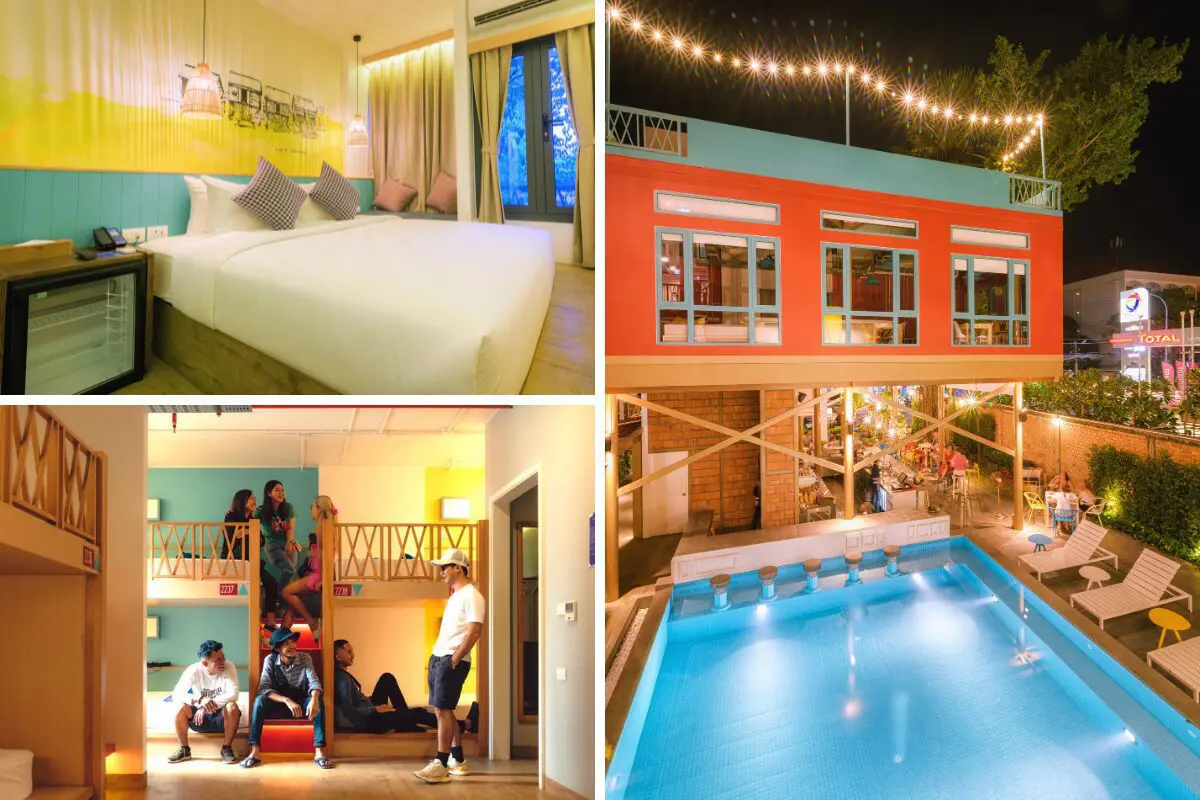
Discover the perfect blend of affordability, vibrancy, and adventure at Lub d Siem Reap, where exceptional experiences await without breaking the bank. Our property stands out as a beacon of fun and excitement in the heart of Siem Reap, offering guests a gateway to the rich culture and breathtaking landscapes of Cambodia.
Dive into our curated activities, from exploring the ancient wonders of Angkor Wat to immersive countryside tours that unveil the true beauty of rural Cambodia. As night falls, join us on an exhilarating journey to the famous Pub Street, where you can hop between bars, savor local delicacies, and soak in the lively atmosphere that makes Siem Reap nightlife legendary.
At Lub d Siem Reap, we’re not just about providing a place to stay; we’re about creating memories, fostering friendships, and ensuring your Cambodian adventure is as enriching as it is affordable. Welcome to your vibrant home away from home, where every day is an opportunity for new adventures.
Read Also:
Discover How Lub d Siem Reap Partakes in Sustainable and Socially Responsible Hospitality
What To Do In Siem Reap City Center, The Guide To The Area
Adventure Awaits: Top Backpacking Tips & Activities in Siem Reap
Culinary Gems On A Budget: Top 5 Street Food Spots And Night Markets In Siem Reap
